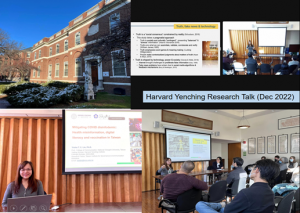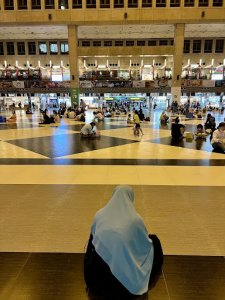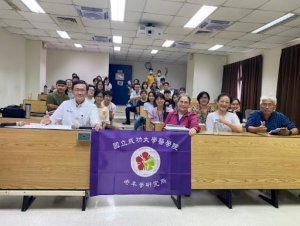―M. Angelou
One challenge that I didn’t understand in its entirety when I accepted my grant to come to Taiwan was what it is like to be illiterate. There are many things in life that we take for granted, and sometimes, it takes the absence of something to really understand that concept. For example, when you are sick with a cold and you are so congested that you can’t breathe normally, it is not until that moment that you realize what a privilege it is to breathe properly. This has been the case for me during my service in Taiwan. I had no idea how incredibly fortunate I am to be literate–able to read and write in the primary language of each country in which I had previously resided. I took for granted the automatic ease of functioning in a society that literacy gives an individual. My current illiterate state in the Mandarin language allows me to more fully appreciate the power and importance of literacy on a variety of levels.
Initially, I had major reservations about accepting my position in Taiwan because I had no experience with or knowledge of the Chinese language. Although I had previously lived in 5 other countries, I had never lived in a country where I could not fluently speak its language. I knew that learning to speak and listen to people was going to be hard. However, I did not fathom the depth of complexities and challenges of my illiteracy.
My earliest personal association with the concept of illiteracy relates to my great grandfather on my mother’s side of the family. I called him Zadie. I was fortunate to have known him when I was little. He was the only illiterate person that was a part of my inner family circle. He could not read or write in English, but he could speak Yiddish, Ukrainian, Russian, and English fluently. I never knew this fact until I was much older, and he had already died at the age of 96. My mother revealed his illiteracy casually to me one day when we were flipping through photo albums. There were several pictures of me sitting in his lap with a book, and he appeared to be happily reading to me. She told me that I listened intently as he made up stories, unaware that he was not actually reading the words on each page.
In the process of trying to understand what it really meant to be illiterate, I recently spoke in-depth to my mother about Zadie’s illiteracy. She told me about his life’s journey as a penniless Eastern European immigrant arriving at Ellis Island around 1918. He was the eldest boy of 12 siblings struggling to survive in a foreign land under extremely difficult circumstances. I personally relate to using a couple of the same daily survival strategies almost 100 years later. The best illustration of this is eating at a restaurant. Zadie was a man who had survived the “Great Depression” and truly knew the meaning of hunger, so unsurprisingly, his favorite type of restaurant was a buffet (“All you can eat.”). At a buffet, you can view all of the food offered and simply choose what you want without reading a menu.
I have used a similar strategy at the lunch box place that I go to regularly. I filled up my plate with my food choices or pointed to what I wanted. I have been able to get the food that I wanted without having to read a single Chinese character. However, for Zadie and myself, there have been special occasions when going out to eat with family or friends required menu reading. One strategy that he used was to choose places where he knew what to expect and what he could order. He liked to eat at a particular delicatessen where he could order his favorite corned beef sandwich and borscht soup. I do the exact same thing. Once I have become familiar with a restaurant’s offerings, I order foods that I know I will like such as fried rice or beef noodle soup. Using this strategy has helped me avoid the awkward look at the menu and the feeling of stupidity of not being able to answer the question of “what do you want?”
When Zadie went out with friends to an unfamiliar restaurant he’d say, “I’ll have what he’s having.” I have done the same thing on many occasions. It has offered me the opportunity to be flexible in my food choices and have new culinary experiences. I must have faith in friends and colleagues that they would order something that would be palatable, if not, at least, edible. I have been extremely lucky so far with this strategy. There have been many occasions, however, when friends have kindly translated for me my options. Being illiterate in Taiwan, I am not free to walk into whatever restaurant I would like; I have to employ these same strategies that Zadie did.
I never thought that I would be making connections like these to my deceased great grandfather when I chose to come to Taiwan. Eating is not only a basic human need but also a huge part of the culture here. Food is a major passion for me, so not being able to eat at any restaurant that looks tempting is a constant reminder of my dependence on others and the disempowerment of being illiterate.
Struggling with the challenges of illiteracy on a daily basis in Taiwan has made me a more compassionate and understanding educator. When I taught as an elementary school teacher in the USA, I had many illiterate Latino immigrant parents. Sometimes, they had very low literacy levels in their native language in addition to low levels in English. Parents typically shared this information during parent-teacher conferences. They expressed their concerns of not being able to help their children with homework because of their own struggles with literacy. I frequently discussed with them how to support their child’s education despite their own illiteracy or low literacy level. My experience of being illiterate in Taiwan has made me more empathetic to how these parents felt and the depth of challenges that they encountered on a daily basis.
When I wanted to sign up for a badminton class in Taiwan, a sport that I played in high school, college, and even when I studied abroad in Spain, I thought it would be a simple task, but I had to ask for help. A friend looked up the schedule for me, printed it out, translated it, and read me the options. Then, she took me to the recreation center where she helped me negotiate my best options for time, date, level, and cost. Then, she helped me fill out the registration form, on which she also had to write in some information. Finally, I wrote in English at the bottom of my receipt the time and day of the week that the class would start. On the first day of class, I got there early. I was excited and nervous.
I waited and waited and waited, and no one came. I finally went down to the desk with my receipt and in broken Chinese, expressed my confusion. The woman at the desk looked at my receipt, pointed out exactly where it said (in Mandarin) that my class was the following day, and asked, why had I come on the wrong day. She then crossed out where I had written Saturday and wrote the word Sunday on top of my receipt. I walked out of the rec center and cried. I felt like such an idiot despite all of my friend’s efforts to help me sign up for the class. If I could have simply read the paper that I was carrying, then this would have never happened. Now, when I think about my students’ illiterate parents wanting to do something as basic as signing up their child for an after school program, I empathize on a much deeper level and am inspired to behave differently as an educator.
Ordering food in a restaurant or signing up for a class are just two tiny glimpses into the daily struggle of being illiterate in Taiwan. I constantly depend on the goodwill of others. Even when they mean well, I come to a standstill when I cannot communicate my needs or understand the written or oral explanations of other people. I have a plethora of additional daily life examples of struggles at airports, with signage, bank transactions, landlord communications, receipts, and mail that illustrate the difficulty of constantly using survival strategies. It is often stressful causing me physical and mental exhaustion. I have an ever-growing sympathy and understanding of what it means to be illiterate. I even, at times, feel blessed to have been challenged in this way during my time here because I truly believe that it is making me a more compassionate and enlightened human being and educator.
Emily Quade is a U.S. Certified K-9 Dual Language/Bilingual Educator. She holds a MA in TESOL and Language Program Administration from the Monterey Institute of International Studies, a graduate school of Middlebury College. She has experience working with preschoolers through adults in ESL, EFL, and Bilingual Education programs. She has worked as a teacher trainer in Honduras and Mexico and is currently working for Fulbright Taiwan as a TEFL trainer and advisor. Her professional interests include teacher training, the use of culturally relevant literature in the classroom, language and identity, and dual language education (two-way immersion).







